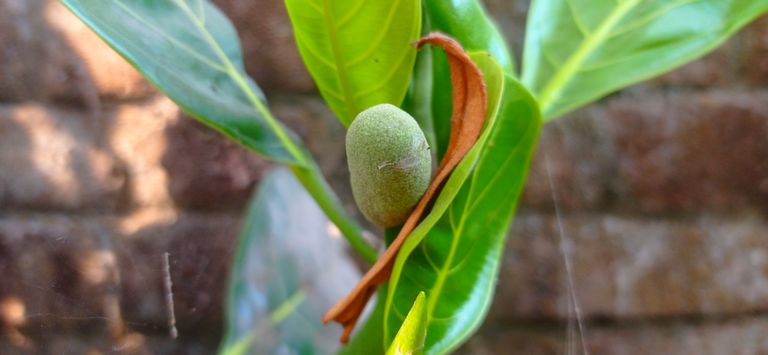Jackfruit, scientifically known as Artocarpus heterophyllus, is one of the largest and most unique tropical fruits on the planet. Native to southwestern India, the jackfruit tree has found its way to various tropical and subtropical regions around the world. Its massive size, distinct appearance, and flavor profile have captivated people for centuries. In this blog, we’ll delve into the properties of jackfruit, uncover the secret behind its popularity, explore the benefits of eating jackfruit, and break down its impressive nutritional content.


1. A Unique and Versatile Fruit
Jackfruit is a member of the Moraceae family, which also includes breadfruit and fig trees. Its distinctive appearance is hard to ignore: it’s large, spiky, and can weigh anywhere from 10 to 80 pounds. When ripe, the fruit boasts a sweet, tropical flavor with a rich, fruity aroma. However, its versatility extends far beyond just being a sweet fruit. Unripe jackfruit is an excellent plant-based alternative to meat, often used as a substitute in vegetarian and vegan dishes. The fruit is rich in fiber, low in fat, and contains a variety of essential vitamins and minerals, making it a nutritional powerhouse.
2. Jackfruit’s Nutritional Composition
Before we dive deeper into the health benefits, let's take a closer look at the impressive nutritional content of jackfruit. A typical serving (100 grams) of raw jackfruit contains the following:
Calories: 95 kcal
Carbohydrates: 23.25 grams
Protein: 1.72 grams
Fat: 0.64 grams
Fiber: 1.5 grams
Vitamins:
Vitamin A: 4.3 IU
Vitamin C: 13.7 milligrams (approximately 23% of the daily recommended value)
Vitamin B6: 0.2 milligrams
Folate: 36 micrograms
Minerals:
Potassium: 303 milligrams
Magnesium: 37 milligrams
Calcium: 24 milligrams
Iron: 0.6 milligrams
Antioxidants: Including flavonoids, carotenoids, and polyphenols
These values may vary slightly depending on ripeness and preparation method. Jackfruit is also packed with water, which makes it hydrating and refreshing, especially in hot climates.
3. The Secret Behind Jackfruit’s Popularity
One of the biggest secrets behind jackfruit’s rise in popularity, particularly among those following plant-based diets, is its remarkable ability to mimic the texture and taste of meat. The unripe (or green) jackfruit has a fibrous, stringy texture that, when cooked, resembles pulled pork or shredded chicken. This makes it an excellent substitute in tacos, curries, sandwiches, and more.
Additionally, jackfruit has a mild taste when unripe, which allows it to absorb the flavors of whatever it’s cooked with, much like meat does. It’s this combination of texture and flavor adaptability that has earned jackfruit a coveted place in vegan and vegetarian cooking. As plant-based diets continue to gain popularity, jackfruit is quickly becoming a household staple in many parts of the world.
4. Health Benefits of Eating Jackfruit
Now that we have a better understanding of what jackfruit is and its nutritional composition, let’s take a look at the many health benefits it offers. Whether you’re looking to support your immune system, improve digestive health, or even manage weight, jackfruit can be a valuable addition to your diet.
A. Rich in Antioxidants
Jackfruit is packed with antioxidants, including flavonoids, carotenoids, and polyphenols. These compounds help protect the body from oxidative stress, which is a result of free radical damage. Free radicals are unstable molecules that can damage cells, leading to chronic diseases such as heart disease, diabetes, and cancer. By neutralizing free radicals, antioxidants help reduce inflammation and prevent the damage that could lead to disease.
Carotenoids, like beta-carotene, are particularly abundant in jackfruit and contribute to the fruit’s vibrant yellow color. These antioxidants are known to support eye health, improve skin appearance, and may even reduce the risk of certain cancers.
B. Supports Immune Health
One of the standout benefits of jackfruit is its high vitamin C content. A single 100-gram serving provides about 14 milligrams of vitamin C, which is approximately 23% of the daily recommended intake for adults. Vitamin C is crucial for boosting the immune system as it helps stimulate the production of white blood cells, the body’s primary defense mechanism against infections.
In addition to vitamin C, jackfruit also contains small amounts of vitamin A, another essential nutrient for immune function. Vitamin A supports the mucous membranes, which act as a barrier to infections in the respiratory and digestive systems.


C. Promotes Digestive Health
Jackfruit is an excellent source of dietary fiber, which plays a significant role in maintaining a healthy digestive system. A 100-gram serving of jackfruit provides 1.5 grams of fiber, helping to regulate bowel movements, prevent constipation, and promote gut health. Fiber also acts as a prebiotic, feeding the good bacteria in the gut and supporting overall digestive health.
Moreover, jackfruit contains a unique enzyme called “papain,” which is known for its digestive properties. Papain helps break down proteins and can aid in the digestion of food, making jackfruit an excellent addition to meals for individuals with digestive issues.
D. Improves Heart Health
With its high potassium content, jackfruit can help regulate blood pressure and support heart health. Potassium is a key mineral that helps balance sodium levels in the body, ensuring that blood vessels remain relaxed and blood pressure stays within a healthy range. Adequate potassium intake can lower the risk of hypertension, stroke, and other cardiovascular diseases.
Furthermore, jackfruit’s antioxidant content, including flavonoids, can help prevent the oxidation of cholesterol in the bloodstream. This is important because oxidized cholesterol can lead to the formation of plaques in the arteries, increasing the risk of heart disease.
E. Weight Management
Due to its high fiber content and relatively low-calorie profile, jackfruit can aid in weight management. Fiber helps promote feelings of fullness and satisfaction after meals, which can prevent overeating. The low-fat content of jackfruit further contributes to its appeal as a weight-friendly food.
Moreover, jackfruit is rich in water, which can help keep you hydrated and further contribute to satiety. As a result, jackfruit is often included in weight loss diets and meal plans designed to promote healthy, sustainable weight loss.
F. Regulates Blood Sugar
Jackfruit is also a good source of magnesium, a mineral that plays a role in regulating blood sugar levels. Magnesium helps the body utilize insulin more effectively, which is essential for preventing spikes in blood sugar. In addition, the high fiber content of jackfruit helps slow the absorption of sugar into the bloodstream, making it a beneficial fruit for individuals with diabetes or those looking to manage their blood sugar levels.
G. Supports Skin Health
The abundance of vitamins, antioxidants, and minerals in jackfruit makes it a great food for promoting healthy, youthful-looking skin. Vitamin C, in particular, is vital for collagen production, which helps keep the skin firm, smooth, and elastic. Furthermore, antioxidants protect the skin from damage caused by UV rays and environmental pollutants, preventing premature aging and the formation of wrinkles.
The phytonutrients in jackfruit also help fight inflammation and reduce the risk of skin conditions such as acne and eczema. Some people even use jackfruit extract in topical skincare products for its potential to soothe and rejuvenate the skin.
5. How to Incorporate Jackfruit into Your Diet
There are numerous ways to incorporate jackfruit into your diet, depending on whether it’s ripe or unripe. Here are some ideas:
Ripe Jackfruit: The sweet, yellow flesh of ripe jackfruit can be eaten as-is, like any other tropical fruit. It’s delicious in smoothies, fruit salads, or even desserts like ice cream or cakes.
Unripe Jackfruit: The fibrous, neutral-flavored flesh of unripe jackfruit is perfect for savory dishes. You can use it to make curries, tacos, sandwiches, or even jackfruit “pulled pork.” The texture makes it an ideal meat substitute in a wide variety of plant-based recipes.


Jackfruit Seeds: Don’t throw away the seeds! They are edible and highly nutritious. You can boil or roast them and add them to soups or salads. They contain proteins, fiber, and various vitamins and minerals.
Jackfruit Flour: Ground jackfruit flour is an excellent gluten-free alternative to wheat flour. It can be used in baking, pancake recipes, or as a thickening agent in soups and sauces.
6. Conclusion
Jackfruit is a truly remarkable fruit, offering an impressive array of health benefits and a rich nutritional profile. Its versatility, both in terms of culinary use and health applications, makes it a valuable addition to any diet. Whether you’re looking for a natural meat substitute, a way to boost your immune system, or a delicious way to support your digestive and heart health, jackfruit has got you covered.


Video credit agrosumon
By incorporating jackfruit into your meals, you can enjoy its wide-ranging health benefits while savoring its delicious taste and unique texture. With its growing popularity and accessibility, it’s clear that jackfruit is much more than just a tropical fruit—it’s a superfood in its own right. So the next time you come across this mighty fruit, don’t hesitate to try it out and experience the power of jackfruit for yourself!